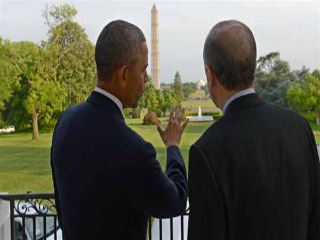Changing of the Guard: Judicial Reforms Reinforce Concerns About the AKP's Increasing Authoritarianism
By Gareth H. Jenkins (vol. 03, no. 19 of the Turkey Analyst)
The restructuring of the Supreme Board of Judges and Prosecutors (HSYK), which is responsible for appointments and disciplinary procedures in the Turkish judicial system, was one of the key reforms in the package of constitutional amendments which were approved in a referendum on September 12, 2010. During the referendum campaign, the ruling Justice and Development Party (AKP) claimed that the restructuring of bodies such as the HSYK and the Constitutional Court were prerequisites for the establishment of what it termed an “independent judiciary”. The reformed HSYK held its first meeting on October 25, 2010. Yet both its composition and its initial decisions have reinforced, rather than allayed, growing concerns both about the politicization of judicial processes in Turkey and the increasing authoritarianism of the AKP.
Fusing Statism and Religious Conservatism: Is the AKP Introducing a More Formidable Version of Semi-Authoritarianism?
By Halil M. Karaveli (vol. 2, no. 16 of the Turkey Analyst)
The determination of the Turkish government to muzzle critical media is the clearest sign to date that Turkey is drifting towards semi-authoritarianism. Contrary to the expectations of its liberal supporters, the AKP is not about to dismantle statism. Fusing statism and religious conservatism, the AKP could be introducing a semi-authoritarian model more comprehensive and potentially more enduring than the defunct Kemalist model.
In the Shadow of Kenan Evren
By Halil Magnus Karaveli (vol. 1, no. 13 of the Turkey Analyst)
On September 12, 1980, the Turkish military staged a coup that was to have wide-ranging consequences. That date is indeed the defining point of recent Turkish history. The repercussions of the 1980 coup still reverberate. The dynamics of Turkish politics - the moderate Islamists assumption of power, the depreciation of secularism by the liberal intelligentsia and its alignment with Islamic conservatism - can only be properly grasped against the backdrop of what the generals accomplished during their dictatorship in the 1980s.
What the Columnists Say
The explosion at the Soma coal mine that claimed the lives of three hundred workers has led some to critical comments against the neo-liberal economic regime in Turkey. Hasan Cemal, a liberal commentator, argues that it’s time to revisit long-forgotten notions like social justice and he questions the wisdom of totally expelling the state from the economy. The rising tensions in Turkish society are of great concern for many commentators. Oral Çalışlar, a liberal, warns that Turkey is drifting toward chaos. And although he does not hold Prime Minister Recep Tayyip Erdoğan solely responsible for this dangerous drift, he nonetheless argues that Erdoğan’s reactions exacerbate the polarization and he urges him to take steps that ease the tensions. Yüksel Taşkın, a social democratic academic and columnist, accuses the AKP government of having intentionally alienated the Alevis and he warns that especially the Alevi youth has become a powder keg that is ready to blow up.
Washington Struggles with Turkey’s Troubles
By Richard Weitz (vo. 7, no. 4 of the Turkey Analyst)
The severe domestic problems of Prime Minister Recep Tayyip Erdoğan are placing a major burden on Turkey-U.S. relations. His authoritarian tendencies and proclivity to blame everyone, including the United States, for his challenges has made it increasingly difficult for the Barack Obama administration to keep silent about his democratic and human rights setbacks. These challenges will likely only increase in coming months.




